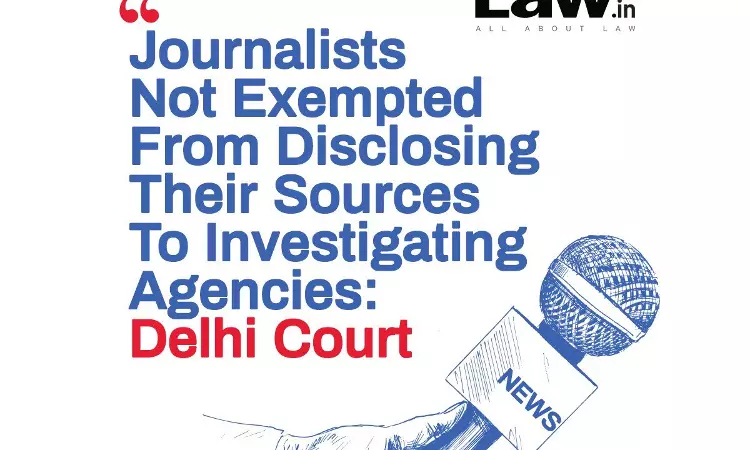Journalists Not Exempted From Disclosing Their Sources To Investigating Agencies: Delhi Court
Nupur Thapliyal
19 Jan 2023 9:18 AM IST

Next Story
19 Jan 2023 9:18 AM IST
A Delhi Court has observed that there is no statutory exemption to journalists from disclosing their sources to investigating agencies, specially where such disclosure is necessary for aiding and assisting in investigation of a criminal case. Chief Metropolitan Magistrate Anjani Mahajan of Rouse Avenue Courts observed so while rejecting a closure report file by Central Bureau of...
